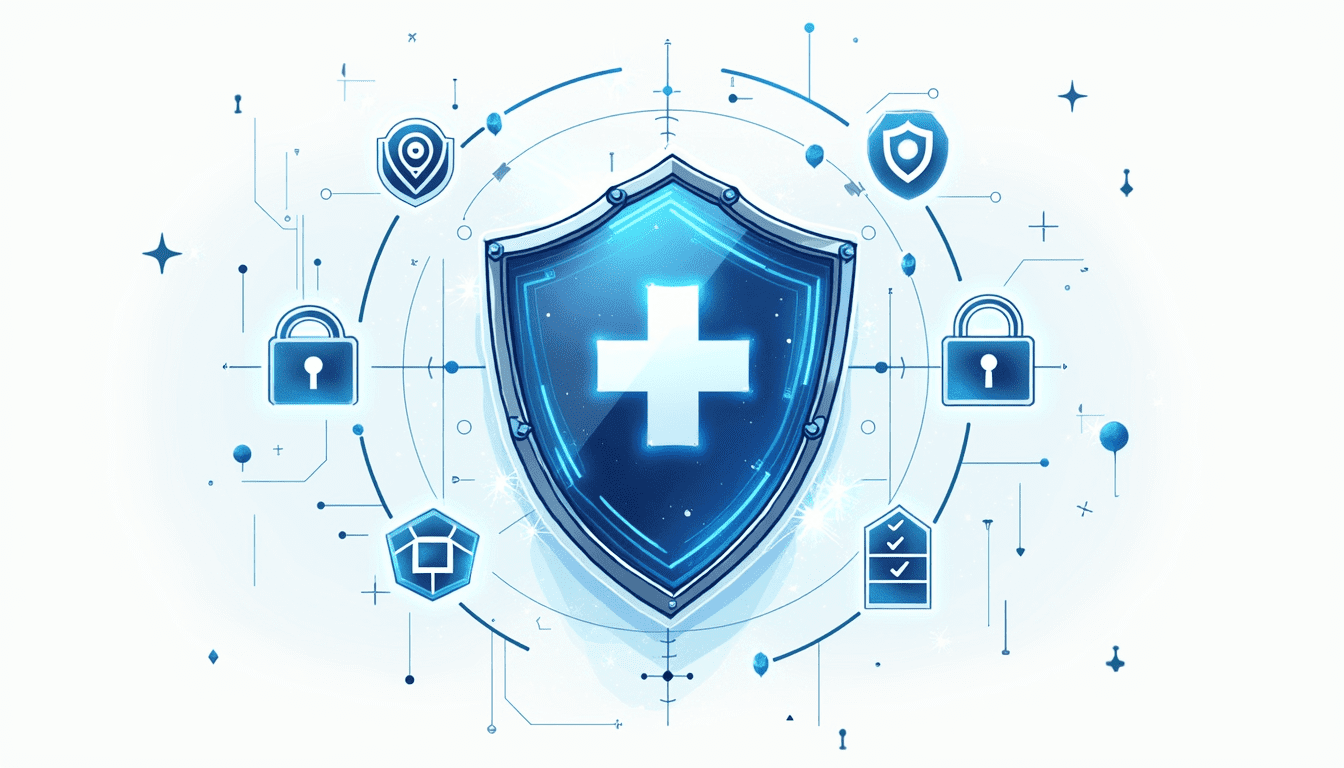Updated March 9, 2025
Defining Data Poisoning in AI Systems
Data poisoning is akin to a slow poison that seeps into an otherwise healthy system, tainting its functionality. In artificial intelligence, especially in medical devices, this means intentionally introducing malicious data into the training set. The aim? To skew the AI’s learning outcomes, resulting in erroneous decisions that could endanger patient safety.
Consider a medical imaging AI trained on thousands of X-ray images. If an attacker injects modified images, the model may misinterpret what a healthy X-ray looks like. This can lead clinicians astray and may even cause serious health risks.
Data poisoning can be executed in various ways, from subtle alterations in the data to the introduction of entirely fabricated datasets. For instance, an attacker might modify a small percentage of images to appear as belonging to a different category, thus confusing the AI model. This attack often goes unnoticed until the AI system is deployed in real-world scenarios, making it a particularly insidious threat. The challenge lies in the fact that many AI systems are designed to learn from the data they receive, which makes them vulnerable to these deceptive tactics.
The Impact of Data Poisoning on Medical Device AI
When data poisoning occurs, it’s like giving a misdiagnosis a front-row seat in the medical community. Medical device AI relies heavily on data for accuracy, and poisoning this data can lead to disastrous outcomes.
The repercussions of such attacks extend beyond misdiagnoses. There can be significant financial implications for hospitals, a breakdown of trust between patients and healthcare providers, and possibly legal ramifications. In extreme cases, life-saving procedures might be delayed or rendered ineffective. The stakes are high, folks!
The implications of data poisoning are not limited to immediate patient care. They can also hinder the advancement of AI technology in medicine. As healthcare providers become increasingly reliant on AI for diagnostics and treatment recommendations, a few high-profile failures due to data poisoning could lead to widespread skepticism about the reliability of AI systems. This skepticism might slow down the integration of beneficial AI technologies into healthcare, ultimately depriving patients of innovations that could enhance their care. Thus, the fight against data poisoning is not just about protecting individual patients; it is about safeguarding the future of medical technology itself.
The Vulnerability of Medical Device AI to Cyber Threats
The Role of AI in Medical Devices
Medical devices empowered by AI are revolutionizing healthcare. They help analyze data at lightning speed, provide predictive analytics, and enhance patient monitoring capabilities. However, this innovation does not come without challenges. Cyber threats lurk in the shadows, ready to pounce on vulnerabilities.
Take infusion pumps or patient monitoring systems; they constantly process sensitive data to operate effectively. This dependence on data naturally makes them attractive targets for cybercriminals. If they can manipulate this data, they can greatly influence patient care and outcomes.
Integrating AI in medical devices allows for real-time decision-making, which can significantly improve patient outcomes. For instance, AI algorithms can detect anomalies in vital signs faster than human operators, prompting immediate medical intervention. However, this reliance on technology also raises concerns about the potential consequences of a cyberattack. Imagine a scenario where an AI-driven device misinterprets data due to malicious interference, leading to incorrect medication dosages or delayed treatments. The stakes are incredibly high, and the implications for patient safety are profound.
Why Medical Device AI is a Target for Cyber Attacks
Medical device AI is akin to the proverbial “low-hanging fruit” for cyber hackers. They know these systems are still adapting to robust cybersecurity standards, making them susceptible to attacks. Vulnerabilities can arise from outdated software, lack of encryption, or poorly designed data management protocols.
What’s more alarming is that these devices often connect to hospital networks, creating pathways for attackers. A single compromised device can serve as a gateway to entire hospital systems. It’s like giving a key to the castle to a rogue invader!
In addition, the rapid pace of technological advancement in medical devices often outstrips the implementation of security measures. Manufacturers may prioritize functionality and speed to market over security, leading to a landscape where devices are deployed with known vulnerabilities. Furthermore, the lack of standardized security protocols across different manufacturers complicates the issue, as healthcare facilities must navigate a patchwork of security measures. This inconsistency can create significant gaps in defenses, making it easier for cybercriminals to exploit weaknesses in the system. The urgency for comprehensive cybersecurity strategies cannot be overstated as healthcare becomes increasingly interconnected.
Strategies for Safeguarding Medical Device AI
Implementing Robust Cybersecurity Measures
The best defense against data poisoning is a formidable offense. Medical institutions must prioritize robust cybersecurity measures. Implementing multi-factor authentication can dramatically reduce unauthorized access. Encryption of data at rest and in transit should be non-negotiable.

Similarly, regular software updates and patch management are essential. Think of these updates as armor that strengthens defenses against potential attacks. Despite the inconvenience, updating systems is far better than dealing with the fallout of a cyberattack. Moreover, conducting regular penetration testing can reveal vulnerabilities before malicious actors exploit them. By simulating attacks, organizations can identify weak points in their defenses and fortify them accordingly, ensuring their systems remain resilient against evolving threats.
Ensuring Data Integrity in AI Systems
Data integrity must be a cornerstone in the architecture of medical device AI. Organizations must instate strict data governance policies, including regular audits and integrity checks. It’s akin to maintaining a clean house; if you don’t regularly check for dirt and grime, the mess will build up before you know it.
Anomaly detection algorithms can help identify unusual patterns in data that may suggest poisoning attempts. This preventive approach helps catch issues early instead of waiting for disaster to strike. Proactive vigilance is key! Furthermore, fostering a culture of data stewardship among staff can enhance awareness and responsibility regarding data handling practices. Training programs emphasizing the importance of data integrity and the potential consequences of negligence can empower employees to be the first line of defense against data breaches. Organizations can significantly bolster their overall security posture by creating an environment where everyone understands their role in safeguarding data.
The Future of Cybersecurity in Medical Device AI
Emerging Cybersecurity Technologies for AI Protection
The landscape of cybersecurity in medical devices is undergoing rapid transformation. Emerging technologies offer promising solutions to combat data poisoning. Solutions such as blockchain can provide immutable data logs, ensuring that any unauthorized changes to data can be detected quickly. Imagine having a digital ledger that records every single piece of data – unduplicatable and forever traceable! This level of transparency enhances security and builds trust among patients and healthcare providers, as they can be assured that their data is protected against tampering.

Artificial intelligence can also play a role in defending AI itself. Machine learning algorithms can be developed to recognize typical patterns in data, making them better equipped to flag anomalies indicative of poisoning. These algorithms can continuously learn from new data inputs, adapting their detection capabilities. This dynamic approach to cybersecurity means that as threats evolve, so do defenses. The future of cybersecurity is a partnership between AI and advanced protective technologies, creating a robust framework that can respond to challenges in real-time, thus ensuring the integrity of medical device operations.
The Role of Regulatory Bodies in AI Cybersecurity
Regulatory bodies have a crucial role in safeguarding medical device AI from data poisoning. Establishing clear standards and guidelines helps create a unified approach to security. These standards can dictate what constitutes acceptable data management and cybersecurity protocols. By setting these benchmarks, regulatory agencies can help ensure all stakeholders are held accountable, fostering a culture of security permeating the entire healthcare ecosystem.
Fostering collaboration between healthcare providers, manufacturers, and cybersecurity experts ensures everyone is playing on the same team. It’s a classic case of ‘two heads are better than one.’ The more minds working together to address vulnerabilities, the more resilient medical device AI will become. Regular workshops and seminars can be organized to keep all parties informed about the latest threats and innovations in cybersecurity. This proactive approach enhances knowledge sharing and encourages the development of best practices that can be adopted universally. As the landscape of medical technology continues to evolve, so must the strategies employed to protect it, ensuring that patient safety remains paramount in the digital age.
Conclusion
Addressing data poisoning threats in AI for medical devices cannot be overstated. As healthcare continues its digital transformation, safeguarding these systems must be a top priority. With the right strategies, technologies, and collaboration in place, we can shift the balance of power back into the hands of healthcare professionals—and, ultimately, the patients they serve.
As the digital landscape of healthcare evolves, the need for stringent cybersecurity measures becomes increasingly critical. Blue Goat Cyber stands at the forefront of this battle, offering unparalleled expertise in medical device cybersecurity. With a proven track record of guiding manufacturers through FDA compliance and a deep understanding of healthcare security requirements, our team is equipped to ensure that your medical devices are compliant and resilient against cyber threats throughout their lifecycle. Don’t let data poisoning threats compromise patient safety or the integrity of your medical devices. Contact us today for cybersecurity help, and partner with a leader dedicated to securing the future of healthcare technology.
Medical Device AI Data Poisoning FAQs
AI data poisoning occurs when cybercriminals intentionally manipulate the training data used to develop AI models in medical devices. This results in biased, inaccurate, or unsafe predictions, leading to compromised patient diagnoses and treatments.
Poisoned data can cause an AI-powered medical device to misclassify medical images, misinterpret patient vitals, or suggest incorrect treatment plans. This can lead to delayed diagnoses, incorrect prescriptions, or even device malfunctions, putting patient safety at risk.
- Label flipping – Changing the labels of medical images to misguide the AI model.
- Backdoor attacks – Inserting hidden triggers that activate under specific conditions, altering the AI’s decision-making.
- Subtle data corruption – Injecting imperceptible noise or outliers into training data to skew model predictions.
- Supply chain compromise – Manipulating third-party datasets before they reach manufacturers.
Any medical device that relies on AI for decision-making is at risk, including:
- AI-powered radiology and diagnostic imaging systems
- Remote patient monitoring devices that analyze vitals
- AI-driven drug recommendation systems
- Robotic surgery platforms that use machine learning
- Secure and validate training datasets – Use only verified and encrypted sources.
- Adversarial training – Expose AI models to potential poisoning attempts to improve resilience.
- Real-time anomaly detection – Monitor AI predictions for unusual behavior.
- Access control – Limit who can modify training data and model parameters.
Unlike ransomware or malware, which disrupt operations, AI data poisoning subtly corrupts the integrity of AI decision-making. This makes it harder to detect and potentially more dangerous because affected devices may still appear functional while making incorrect predictions.
Regulatory bodies like the FDA, EU MDR, and ISO 14971 emphasize AI security. Following the FDA’s AI/ML-based SaMD guidance, ensuring robust data validation, and integrating continuous monitoring and adversarial testing can help manufacturers meet compliance standards and secure AI-driven medical devices.
